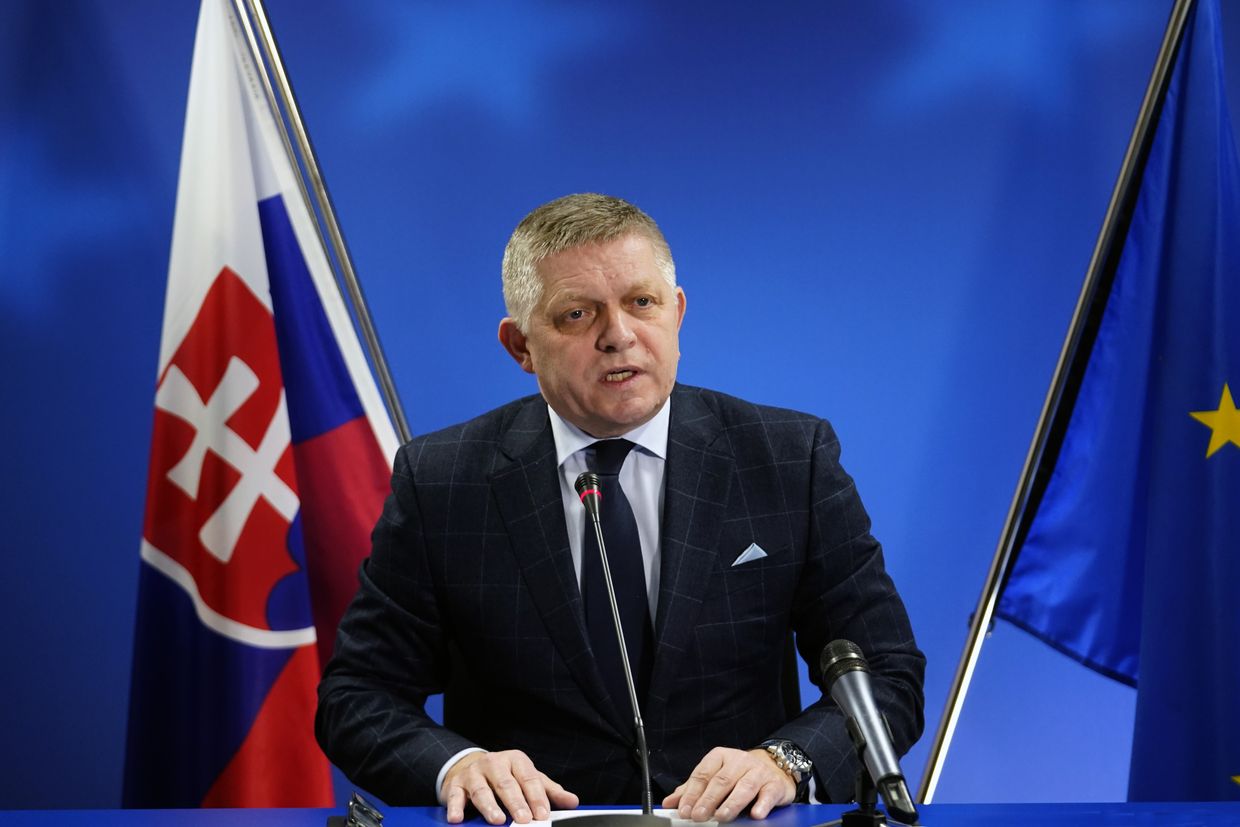Fico refused Kyiv's offers to help with gas supplies, Zelensky says

Slovak Prime Minister Robert Fico refused Ukraine's offers of assistance following the discontinuation of Russian gas flows via Ukrainian territory, President Volodymyr Zelensky said on Jan. 12.
Zelensky's comments come shortly after Fico lambasted Ukraine as an unreliable partner and accused Zelensky of "begging and blackmailing" European leaders.
"We offered our assistance to the people of Slovakia during their adaptation to the absence of Russian gas transit, but Fico arrogantly refused," Zelensky said in a post on X.
"Many in Europe warned him that doing nothing and waiting was not an option. Now, he's resorting to PR, lies, and loud accusations to shift the blame away from himself onto someone else."
Ukraine did not renew a pre-war agreement to transit Russian gas to Europe via Ukrainian territory, instead allowing the deal to expire on Jan. 1. Kyiv warned repeatedly that it would not extend the deal in order to stop financing Russia's full-scale war.
Slovakia, still heavily reliant on Russian gas even as other EU countries find alternative energy providers, harshly criticized Ukraine's decision. Fico has threatened to cut off humanitarian aid and electricity supplies to Ukraine in retaliation.
Zelensky condemned Fico's threat, accusing him of opening "a second energy front against Ukraine" at the behest of Russian President Vladimir Putin. Fico met with Putin in Moscow on Dec. 22, a week before the transit deal was set to expire.
A delegation of Slovak far-right MPs also departed for Moscow on Jan. 12 to hold talks with Russian government officials on continuing gas supplies and other issues.
Zelensky said that Fico's refusal to find an alternative energy supplier was the result of his misplaced loyalty to Russia.
"But the real problem is that he bet on Moscow, not on his own country, not on a united Europe, and certainly not on common sense," Zelensky said on Jan. 12.
"From the beginning, it was a losing bet."
Zelensky said he hoped that Europe and the U.S. would collaborate effectively to diversify energy supplies to Europe and "address the challenges caused by the shortsightedness of certain European figures."












